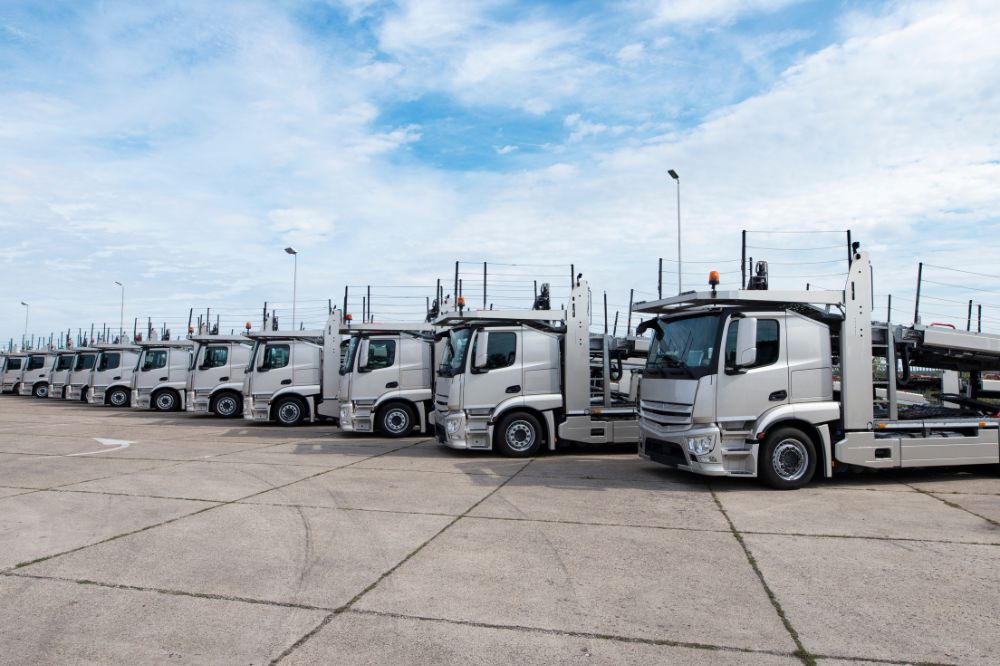Why Fleet Vehicles Are Vital for Australian Businesses
Posted May 20, 2025

The Role of Fleet Vehicles in Business Success
Fleet vehicles are the backbone of many Australian businesses, enabling efficient transportation, timely deliveries, and streamlined operations. Whether it’s a logistics company managing a vast network of deliveries or a service-based business needing reliable transportation, having a well-managed fleet is essential for success.
For business owners, logistics managers, and fleet operators, investing in the right fleet vehicle solutions can lead to significant cost savings and operational efficiencies. This article explores why fleet vehicles are indispensable for businesses in Australia and how effective fleet management contributes to long-term success.
Enhancing Operational Efficiency with Fleet Vehicles
One of the primary reasons businesses invest in fleet vehicles is to improve operational efficiency. Owning or leasing a fleet allows companies to control transportation schedules, reduce downtime, and ensure their products or services reach customers on time.
Fleet vehicles play a crucial role in sectors such as logistics, construction, healthcare, and field services, where the timely movement of goods and personnel is essential. With a dedicated fleet, businesses can minimise dependency on third-party transport services, leading to improved reliability and customer satisfaction.
Cost Savings and Financial Benefits
Cost efficiency is a key factor that makes fleet vehicles vital for Australian businesses. When businesses invest in well-maintained vehicles, they reduce unexpected repair costs and enhance productivity. Additionally, leasing or financing fleet vehicles rather than purchasing them outright allows businesses to maintain better cash flow while still having access to a modern and fuel-efficient fleet.
Proper fleet management also ensures that businesses can monitor fuel usage, track maintenance schedules, and optimise vehicle deployment to reduce overall expenses. By leveraging fleet tracking and data analysis, businesses can identify areas for improvement, such as reducing idle time, improving driver routes, and preventing unnecessary wear and tear on vehicles.
Reliability and Business Continuity
A well-managed fleet offers reliability, which is crucial for maintaining seamless business operations. Whether it’s meeting delivery deadlines or ensuring service personnel can reach their destinations without delay, fleet vehicles provide businesses with the assurance they need.
In industries such as courier services, emergency response, and trade services, a dependable fleet is non-negotiable. With proper fleet management, businesses can proactively schedule maintenance and repairs, reducing the likelihood of vehicle breakdowns that could disrupt operations.
Meeting Sustainability Goals
Sustainability is becoming an important consideration for Australian businesses. Many companies are transitioning to fuel-efficient and eco-friendly fleet vehicles to align with government regulations and environmental goals.
Investing in hybrid or electric fleet vehicles can help businesses lower their carbon footprint while also benefiting from reduced fuel and maintenance costs. Advanced fleet tracking systems further support sustainability efforts by promoting smarter route planning, reducing fuel consumption, and minimising unnecessary vehicle usage.
Compliance with Australian Regulations
Businesses operating fleet vehicles in Australia must comply with various government regulations, including vehicle safety standards, emissions guidelines, and driver work-hour limitations. Having a structured fleet management system ensures compliance with these legal requirements while maintaining operational efficiency.
Failure to adhere to regulatory standards can result in fines and reputational damage. Therefore, businesses must stay up to date with vehicle inspections, roadworthiness tests, and driver safety protocols to remain compliant and avoid legal complications.
The Role of Technology in Fleet Management
Modern fleet operations are increasingly reliant on technology to maximise efficiency and control costs. GPS tracking, telematics, and data analytics provide valuable insights into vehicle performance, driver behaviour, and route optimisation.
By implementing a robust fleet management system, businesses can monitor real-time vehicle locations, automate maintenance scheduling, and improve fuel efficiency. These technological advancements enable businesses to make data-driven decisions that enhance overall productivity and profitability.
Fleet Vehicles as a Competitive Advantage
In today’s competitive market, having a reliable fleet gives businesses an edge over competitors. Customers expect fast and dependable services, and a well-maintained fleet ensures businesses can meet these expectations consistently.
Whether it’s a small business with a few company cars or a large enterprise with an extensive fleet, investing in quality vehicles and efficient fleet management strategies can lead to long-term business growth.
Conclusion
Fleet vehicles are a crucial asset for businesses across Australia, providing operational efficiency, cost savings, and reliability. With the right fleet management practices, businesses can optimise their fleet operations, reduce expenses, and enhance customer satisfaction.
For Australian companies looking to improve their fleet operations, investing in well-maintained vehicles and leveraging technology-driven solutions is the key to long-term success. Ensuring that fleet vehicles align with business goals and sustainability initiatives will further solidify a company’s position in the market.
With strategic planning and effective fleet management, businesses can maximise the value of their fleet investments. Companies like NextFleet provide solutions that help businesses optimise their vehicle operations, ensuring efficiency, reliability, and cost-effectiveness in the ever-evolving Australian business landscape.

Reliable & Efficient Solutions for Your Business
For businesses across Australia, efficient and reliable transportation plays a crucial role in daily operations.




